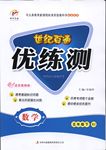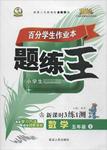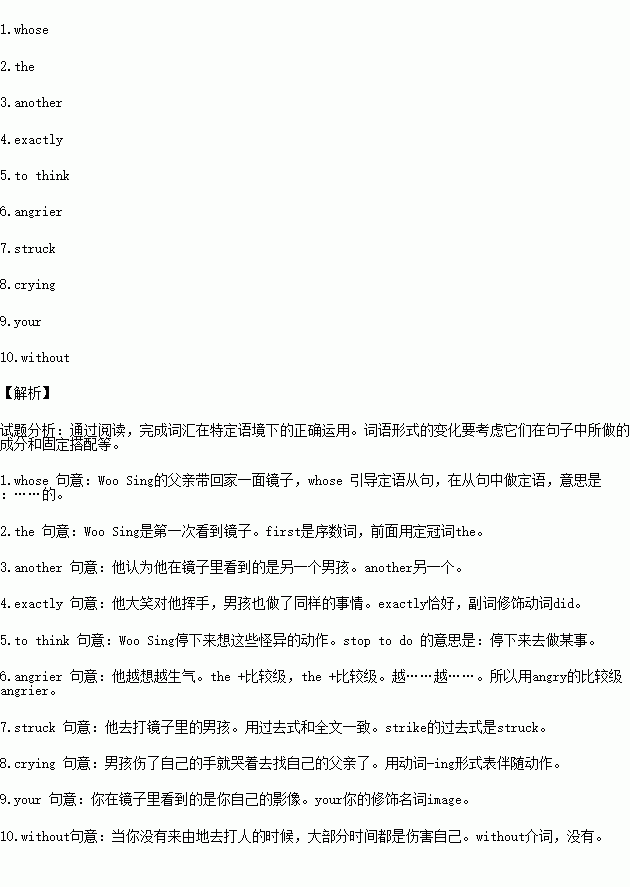题目内容
语篇语法填空
There once live a boy named Woo Sing, __1.___ father brought home a mirror. Woo Sing had never seen one before. So when he saw it for__2.___first time, he didn’t understand what it was, but thought he saw__3.__boy in the mirror, which made him happy, for he thought the boy had come to play with him. He spoke to the stranger in a friendly way, but received no reply. He laughed and waved at the boy, who did ___4.___ (exact) the same thing. Then he thought, “I’ll go closer. It may be because he doesn’t hear me.” But when he began to walk, the boy imitated him. Woo sing stopped _5.__ (think) about these strange actions, saying to himself, “this boy is fooling me. He does what I do.” The more he thought about it, the _6.____ (angry) he become and soon he noticed the boy became angry too. So Woo Sing _7.__ (strike) the boy in the glass, but only hurt his own hand and went __8.___ (cry) to his father, who said, “The boy you saw was __9.___ (you) image. This should teach you an important lesson, my son. You should never show your anger to others. Now remember that in real life when you strike_10.__ cause you’ll hurt yourself most of all.”
 世纪百通主体课堂小学课时同步达标系列答案
世纪百通主体课堂小学课时同步达标系列答案 世纪百通优练测系列答案
世纪百通优练测系列答案 百分学生作业本题练王系列答案
百分学生作业本题练王系列答案
